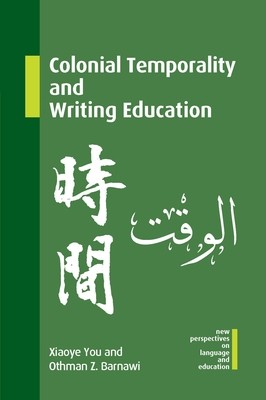
- We will send in 10–14 business days.
- Author: Xiaoye You
- Publisher: Multilingual Matters Limited
- ISBN-10: 1800413866
- ISBN-13: 9781800413863
- Format: 15.6 x 23.4 x 1.1 cm, kieti viršeliai
- Language: English
- SAVE -10% with code: EXTRA
Reviews
Description
This book examines how a colonial matrix of power is established through temporality in English writing education. It offers discourse analyses of higher educational policies that operate in China and Saudi Arabia and then triangulates this data with conversations with writing teachers from representative Chinese and Saudi universities. Drawing on all this data to understand both the structured power relations shaping educational policies and the attendant effects on the writing teachers that inhabit these spaces, the book develops a decolonial comparative method and adopts the concept of "temporal regime" as an analytic lens. It not only attends to the complex and multilayered ways that this regime controls, disciplines and shapes the social wellbeing and professional practices of individual writing teachers, but it also details the various ways that teachers understand, experience, resist, negotiate and appropriate the temporal orders.
EXTRA 10 % discount with code: EXTRA
The promotion ends in 23d.18:54:50
The discount code is valid when purchasing from 10 €. Discounts do not stack.
- Author: Xiaoye You
- Publisher: Multilingual Matters Limited
- ISBN-10: 1800413866
- ISBN-13: 9781800413863
- Format: 15.6 x 23.4 x 1.1 cm, kieti viršeliai
- Language: English English
This book examines how a colonial matrix of power is established through temporality in English writing education. It offers discourse analyses of higher educational policies that operate in China and Saudi Arabia and then triangulates this data with conversations with writing teachers from representative Chinese and Saudi universities. Drawing on all this data to understand both the structured power relations shaping educational policies and the attendant effects on the writing teachers that inhabit these spaces, the book develops a decolonial comparative method and adopts the concept of "temporal regime" as an analytic lens. It not only attends to the complex and multilayered ways that this regime controls, disciplines and shapes the social wellbeing and professional practices of individual writing teachers, but it also details the various ways that teachers understand, experience, resist, negotiate and appropriate the temporal orders.


Reviews